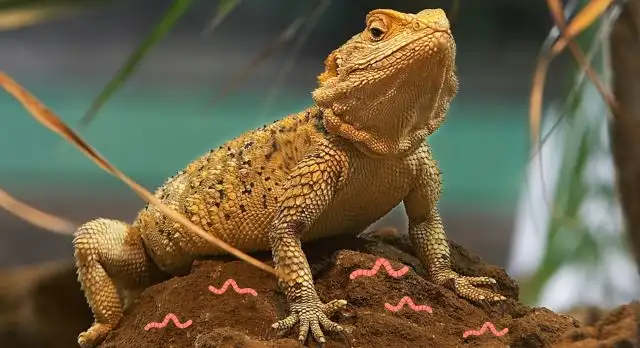Can Bearded Dragons Eat Earthworms? A Comprehensive Guide
Bearded dragons are fascinating reptiles known for their unique diet. As responsible pet owners, it’s crucial to provide them with a balanced and nutritious diet to ensure their overall well-being. While bearded dragons primarily consume insects and vegetables, you might be wondering if they can safely eat earthworms. In this article, we will explore the suitability of earthworms as part of a bearded dragon’s diet, addressing their nutritional value, potential benefits, and potential risks.
Can Bearded Dragons Eat Earthworms?
Yes, bearded dragons can eat earthworms. Earthworms are a good source of protein, vitamins, and minerals, making them a nutritious addition to a bearded dragon’s diet. However, it’s important to consider potential risks such as parasites and the size of the earthworms offered. To ensure safety, source earthworms from reputable suppliers and provide appropriately sized portions. Remember to maintain a balanced diet by incorporating a variety of insects, greens, and vegetables.

Nutritional Value of Earthworms for Bearded Dragons
When considering new food options for your bearded dragon, it’s essential to understand their nutritional requirements. Earthworms are an excellent source of protein, which is crucial for your bearded dragon’s growth, development, and overall health. They also provide essential amino acids that aid in tissue repair and maintenance.
Apart from protein, earthworms are rich in vitamins and minerals. They contain high levels of vitamin A, essential for maintaining healthy skin and eyesight in bearded dragons. Earthworms also provide B vitamins, which support metabolism and energy production. Additionally, they contain minerals like calcium and phosphorus, important for bone health and proper muscle function.
Benefits of Feeding Earthworms to Bearded Dragons
Including earthworms in your bearded dragon’s diet can offer several benefits. Firstly, they provide variety, making mealtime more stimulating for your pet. Introducing new food options helps prevent dietary boredom and encourages natural foraging behavior.
Furthermore, earthworms can contribute to the overall nutritional balance of your bearded dragon’s diet. They are low in fat and provide essential nutrients without excessive caloric intake. This can be particularly beneficial for bearded dragons that require a higher protein intake, such as growing juveniles or females during the breeding season.
Risks and Precautions
While earthworms can be a valuable addition to a bearded dragon’s diet, it’s essential to consider potential risks and take necessary precautions. One concern is the possibility of parasites present in earthworms. To mitigate this risk, ensure you source earthworms from reputable suppliers who breed them in controlled environments and regularly test for parasites.
Another consideration is the size of the earthworms you feed to your bearded dragon. Younger dragons may struggle to consume large earthworms, which could pose a choking hazard. Always select appropriately sized earthworms or cut them into smaller pieces, making them easier to eat and digest.
Additionally, it’s crucial to maintain a balanced diet for your bearded dragon. While earthworms are nutritious, they should be offered as part of a varied diet that includes other insects, leafy greens, and vegetables. This ensures your bearded dragon receives a wide range of nutrients necessary for their optimal health.
Feeding Guide and Recommendations
To incorporate earthworms into your bearded dragon’s diet, follow these guidelines:
- Select earthworms from reputable suppliers that breed them in a controlled and safe environment.
- Opt for smaller earthworms for juvenile bearded dragons and larger ones for adults.
- Always gut-load earthworms with nutritious vegetables before feeding them to your bearded dragon. This enhances their nutritional value.
- Offer earthworms as a treat or supplement to your bearded dragon’s regular diet.
- Avoid feeding wild-caught earthworms, as they may carry parasites or harmful substances.
Key Takeaway
While earthworms can be a valuable addition to a bearded dragon’s diet, it’s crucial to consider the nutritional balance and potential risks associated with feeding them. Earthworms provide essential protein, vitamins, and minerals, but caution must be exercised to ensure their safety and prevent parasitic infections. By following the feeding recommendations and providing a varied diet, you can offer your bearded dragon a diverse and nutritious mealtime experience, promoting their overall health and well-being.
